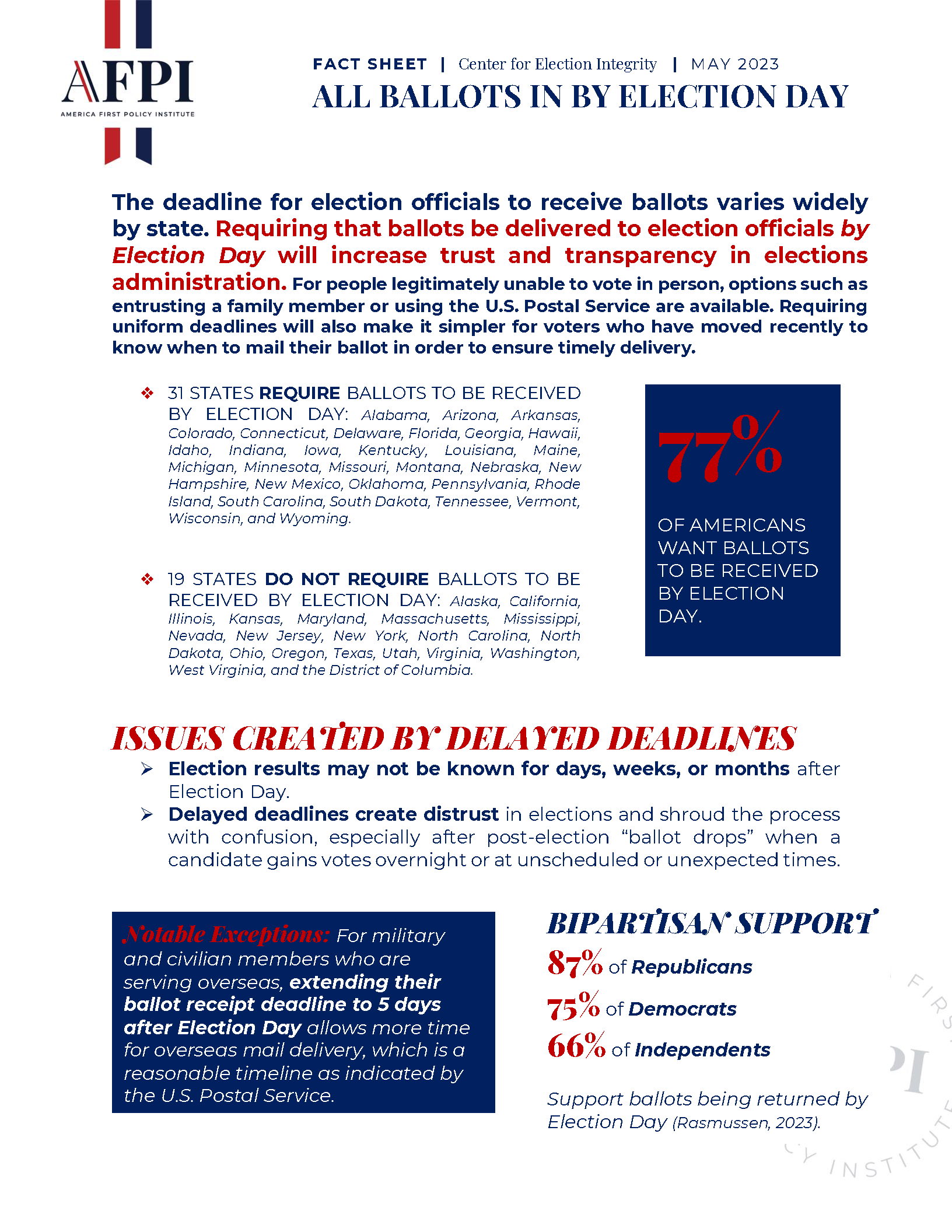FACT SHEET: All Ballots In By Election Day
The deadline for election officials to receive ballots varies widely by state. Requiring that ballots be delivered to election officials by Election Day will increase trust and transparency in elections administration. For people legitimately unable to vote in person, options such as entrusting a family member or using the U.S. Postal Service are available. Requiring uniform deadlines will also make it simpler for voters who have moved recently to know when to mail their ballot in order to ensure timely delivery.
- 31 STATES REQUIRE BALLOTS TO BE RECEIVED BY ELECTION DAY: Alabama, Arizona, Arkansas, Colorado, Connecticut, Delaware, Florida, Georgia, Hawaii, Idaho, Indiana, Iowa, Kentucky, Louisiana, Maine, Michigan, Minnesota, Missouri, Montana, Nebraska, New Hampshire, New Mexico, Oklahoma, Pennsylvania, Rhode Island, South Carolina, South Dakota, Tennessee, Vermont, Wisconsin, and Wyoming.
- 19 STATES DO NOT REQUIRE BALLOTS TO BE RECEIVED BY ELECTION DAY: Alaska, California, Illinois, Kansas, Maryland, Massachusetts, Mississippi, Nevada, New Jersey, New York, North Carolina, North Dakota, Ohio, Oregon, Texas, Utah, Virginia, Washington, West Virginia, and the District of Columbia.
ISSUES CREATED BY DELAYED DEADLINES
- Election results may not be known for days, weeks, or months after Election Day.
- Delayed deadlines create distrust in elections and shroud the process with confusion, especially after post-election “ballot drops” when a candidate gains votes overnight or at unscheduled or unexpected times.
BIPARTISAN SUPPORT
- 87% of Republicans
- 75% of Democrats
- 66% of Independents
Support ballots being returned by Election Day (Rasmussen, 2023).
Notable Exceptions: For military and civilian members who are serving overseas, extending their ballot receipt deadline to 5 days after Election Day allows more time for overseas mail delivery, which is a reasonable timeline as indicated by the U.S. Postal Service.
